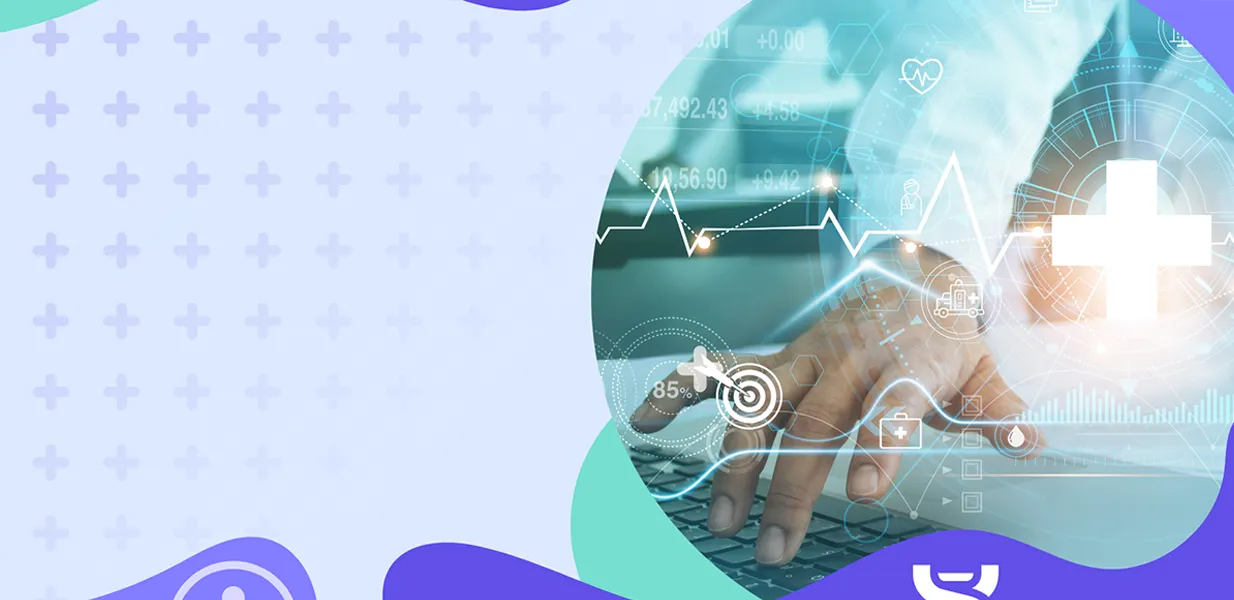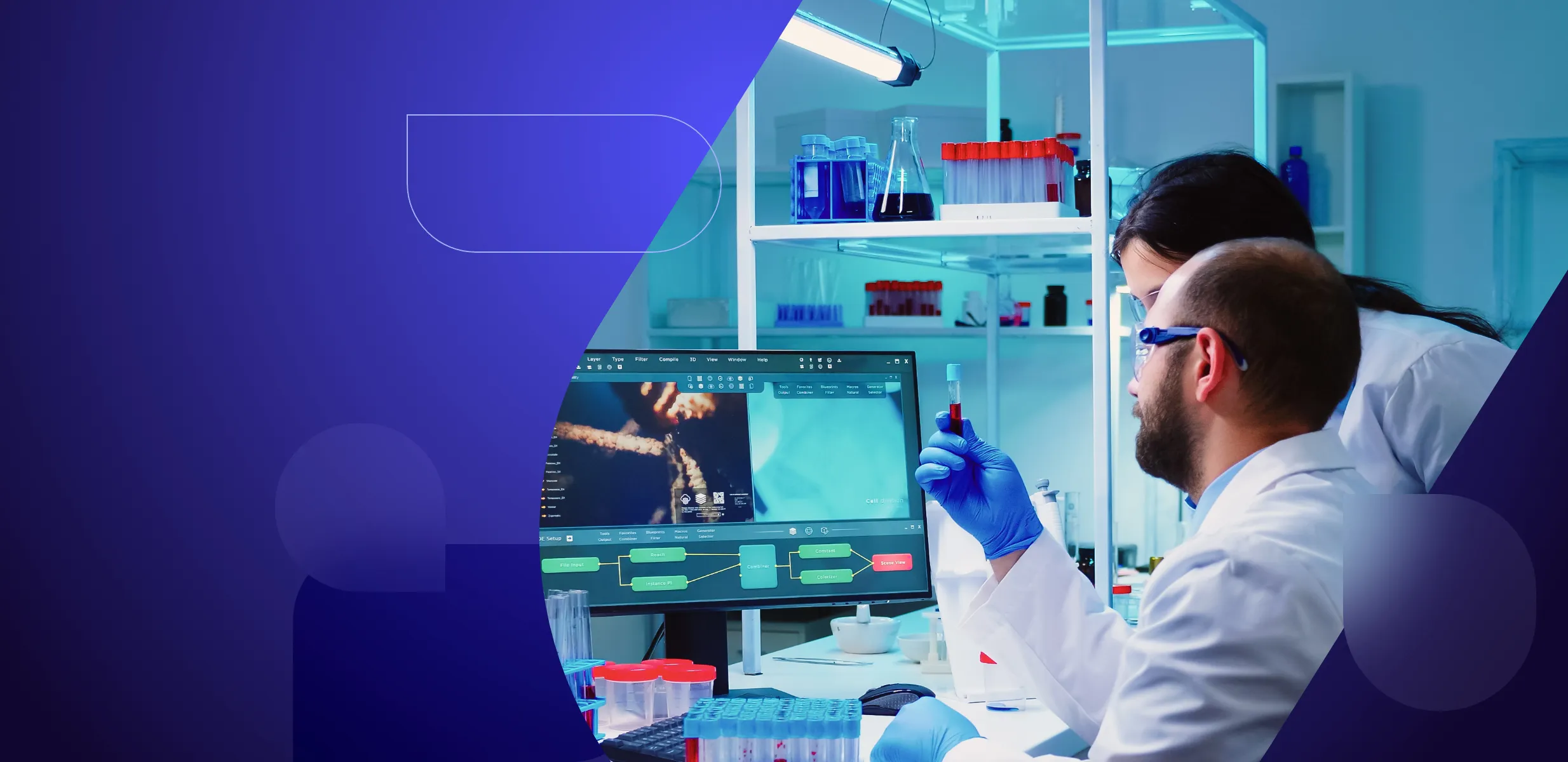
The impact of digital transformation in healthcare

Most aspects of our lives have been transformed by technology in the last decades, including one of the most important aspects - healthcare.
Healthcare is one of the last frontiers where digital modernization is now steadily changing the landscape with new business models, while also transforming health systems with different technology strategies and digital tools. The good news is that more and more health organizations have finally accepted the idea that every company is a digital business, with no exceptions.
Not surprisingly, according to the Accenture Digital Health Technology Vision 2021 report, digital transformation in healthcare is now happening with urgency and a call to action this year.
The promises of digital in medical services are substantial and rooted in ongoing practical applications. It holds great potential to address important issues in the healthcare industry — which would make healthcare services patient-focused and unimaginably more effective.
Digital transformation in healthcare optimizes the delivery of health services by automating repetitive tasks in the healthcare sector, making medical consultations faster, and allowing patients to communicate easily with healthcare professionals.
Other advantages of the digital transformation in the healthcare industry are the ability to keep electronic medical records, improve diagnostics, have medical imaging and drug prescription, and boost the prevention and forecasting processes on both individual and community levels.
The impact of introducing technology in healthcare is manyfold — digital transformation in healthcare comes with a ton of benefits and, naturally, with some challenges. Here is Resolute Software’s overview of the effects, based on our in-depth work with healthcare companies for their digital transformation initiatives.
Efficient patient communication, electronic health records, and improved experience
Recent research shows that new technologies have brought immense novelties to the patient experience. For one, telemedicine is revolutionizing the way people seek and receive medical care. Instead of numerous calls and full waiting rooms, online booking and appointments offer an accessible and more effective way to handle a wide variety of health care needs. Access to medical consultations is thus becoming easier, which is a win-win situation for both patients and health care providers.
In many hospitals, administrative and repetitive tasks get automated already, optimizing patient communication, booking of both online and offline appointments and treatments, and electronic health record management. Easier workflows are powered by various health apps, websites, and many health systems with advanced digital capabilities. This way, healthcare providers save a ton of time and effort — allowing them to concentrate on their most important work and give value-based care.
This trend is also bringing about the rise of on-demand patient care. Patients increasingly can get access to medical consultations or health plans from anywhere and at any moment. All of these advancements improve the patient experience and ultimately can contribute to better outcomes in the health care industry in near future.
Powerful data analysis for prevention and forecasts in care delivery
On the medical side, digital transformation is bringing unseen innovations in forecasting and strategic planning with emerging technologies. Big Data is already in health care — and is proving to be quite beneficial.
With massive data input and data-driven decision-making being the hottest trends in digital transformation in health care, health care organizations can better plan their healthcare providers’ needs and optimize their internal processes and disparate systems. Besides practical scheduling and organization, healthcare executives can forecast epidemic waves and dramatic rises in certain medical conditions with predictive analytics and take preventive measures. They can further use heat maps to locate and manage epidemics events as well as to handle population health management.
At the same time, with IoT, prevention for patients also gets a boost. Technology allows patient care with the effective monitoring of health stats via wearable medical devices. With machine learning algorithms, they are not only comfortable but quite effective, as they can provide early alerting for critical conditions, as well as long-term observation of symptoms. The market for wearable medical devices is projected to be $10.8 billion in 2021 and to grow to $24.38 billion in 2024.
Better diagnosing and human error prevention in health systems
Technology can improve diagnostics and prevent human mistakes in these areas. Artificial Intelligence and robotic process automation can be an important helper in the health care industry in identifying illnesses and conditions in patients.
Digital transformation also powers the analysis of scans and images — which in turn allows healthcare providers to set the diagnosis and treatment equipped with the most accurate digital health information. In oncology, AI-powered programs compare massive amounts of pathology images to suggest the most effective medication plans and quality care. Technology can also be used for early diagnosing. For example, Kelvin Health - one of the big industry players has developed a thermal imaging tool for uncovering cancer anomalies as early as possible.
Digital technologies come quite handy in drug and supplement prescription as well — for avoiding human errors and automating healthcare processes and medicaid services. They can, for example, compare patient records with medication prescriptions to alert for inconsistencies and thus prevent medication errors. There are also platforms like Persona Nutrition and Vitamin Lab where users can get personalized supplements and nutritional regimes based on their specific needs.
Potential issues with data privacy and errors
While digital transformation in the healthcare field holds great potential, it’s important to know its downsides too. Recognizing them doesn’t entail stopping the digitization processes, but can help prevent common pitfalls in how technology is used — or can be abused.
One of the major issues with digital healthcare is ensuring the privacy of patient data. Big data and IoT can be truly helpful, but they pose tough questions about the protection and usage of individuals’ medical information and the management of electronic health records. Misuse, hacks and crashes are all real threats — and medical organizations need to have protection measures in place to address them.
Errors occur with technology too — so there can be issues with diagnosing, treatment and predictions. While digital tools reduce human errors, as a whole, they may also make mistakes and cause harm to patients. It’s important to have a prevention system in place, as well as a clear stance on how the moral responsibility for technological mistakes is handled.
Resolute Software in healthcare
The truth is that in the last 20 years digital achievement in healthcare was lagging behind, with digital transformation agendas looking like decade-long projects. Things have changed for good! And our new reality gave us the unique momentum to rebuild the healthcare systems and create a service where technology leadership takes center stage.
Resolute Software is the trusted partner for digital transformation in healthcare, working with global healthcare organizations among which Fortune 100 companies.
Our latest experience includes the modernization of a healthcare app for a global manufacturer of diagnostic imaging and radiopharmaceutical products. We revamped the system design for the desktop app, which is being used by tens of thousands of medical professionals to access critical patient data.
We have also created a healthcare mobile app for a global health organization that we launched within 10 weeks and had 500,000 downloads within its first weeks. It provides critical health information in 6 languages and in 30 regions around the world.
Ready to start your new digital journey in healthcare? Just get in touch to learn more about how Resolute Software can contribute to your medical organization’s digital efforts.
Frequently Asked Questions
Healthcare professionals benefit a lot from digital innovations. Digital tools allow doctors to view patient health more clearly by increasing access to data on their health and allowing the individual to control their own health. Digital transformation means better performance and outcomes for both sides.
Technology can improve diagnostics and prevent human mistakes in these areas. Trends such as artificial intelligence and robotic process automation can be an important helper in the health care industry in identifying illnesses and conditions in patients.
Digital transformation involves changing the processes of business operations to achieve new objectives. The main areas include changes in business models, in domains, in communication and in data access & data management.





